June 12, 2020
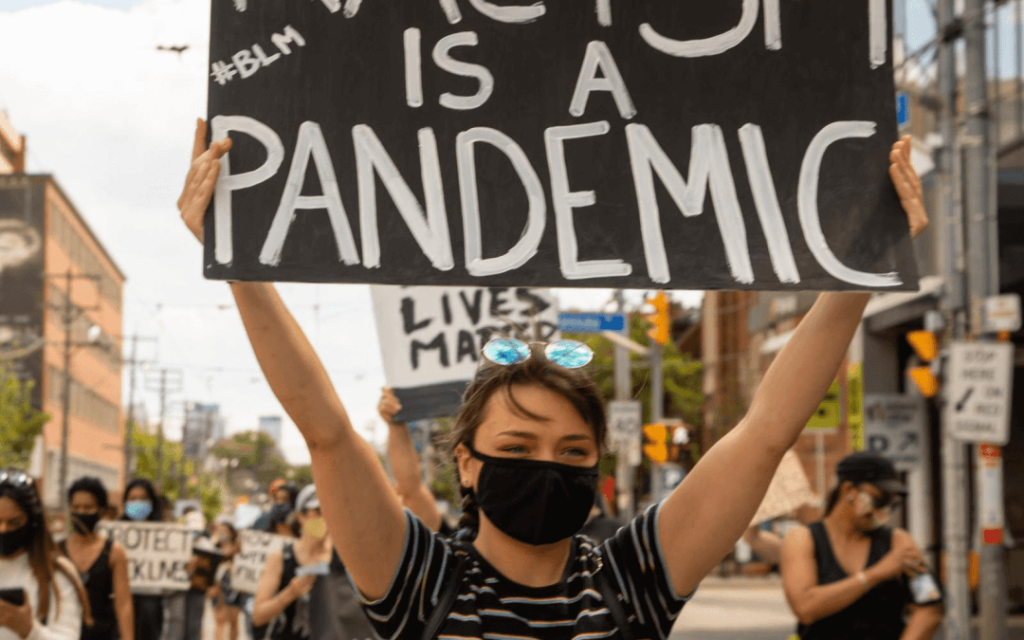
As COVID-19 peaks in Latin America, the new epicenter of the virus, disillusionment with democracy is reportedly on the rise. Survey data by the Latinobarómetro reveals that trust in government in the region fell from 45% in 2010 to 22% in 2018. The effect of delayed elections due to the pandemic have yet to be measured.

As protests for Black Lives Matter continue to rage across the United States, statues venerating Christopher Columbus and Confederate leaders have become the new targets for the movement, leading to widespread defacement of these monuments. Meanwhile, there is an alarming rise in coronavirus cases following several states’ decision to roll back lockdowns. An associated Press analysis reveals that cases are rising in nearly half the states, a worrying trend spiking fear of a second wave and new lockdowns.

Twitter has taken down 170,000 China-linked accounts identified as part of a coordinated campaign to spread disinformation and “deceptive narratives” around the Hong Kong protests, COVID-19, and U.S. protests in relation to George Floyd. The Australian Strategic Policy Institute found that while Twitter is blocked in China, the campaign was targeted at Chinese-speaking audiences outside the country. After U.S. and Hong Kong-based activists reported that their Zoom accounts had been suspended and meetings disrupted after they attempted to hold events related to the anniversary of China’s Tiananmen Square crackdown, Zoom said that it would not allow further requests from the Chinese government to affect users outside the country. Elsewhere, American aircraft carriers have begun patrolling Indo-Pacific waters for the first time in nearly three years, a show of naval force against the backdrop of rising tensions between the U.S. and China in the region. In a tech race with the U.S., China has reportedly embarked on a $1.4 trillion dollar campaign to develop 5G and artificial intelligence capabilities.

Hong Kong police have informed organizers of the annual Tiananmen Massacre vigil that they will face incitement charges for defying a police ban. On the whole, Hong Kong police have made 8,981 arrests between June 9, 2019, and May 29, 2020 in connection with protests. Among those arrested, 1,749 people have been charged, and 100 have been convicted. Pro-democracy organizers recently postponed a demonstration planned for June 12 to mark the anniversary of the blocking of the anti-extradition bill in Hong Kong, citing coronavirus restrictions on public gatherings. The protest has been rescheduled for June 19, when the emergency rule is due to be lifted. In addition, a pro-democracy lawmaker invoked a rarely used legal mechanism to file suit against a Hong Kong police officer for the shooting of a protester, marking the first member of the police force to face charges in court. However, the government could still block the case from advancing. Japanese Prime Minister Shinzo Abe also recently suggested that Japan would take in Hong Kong residents in the financial sector and specialized fields if China moves forward with imposing national security measures.

Lawyers bringing a case before the International Court of Justice (ICJ) accusing Myanmar of genocide against its Rohingya Muslim minority have requested a United States District Court order Facebook to release posts from the country’s military and police. The lawyers believe the communications “may constitute genocidal intent.” Facebook has responded that it would evaluate the request in accordance with applicable laws. In the Rakhine State, shelling attacks, purportedly perpetrated by rebel groups, have continued to kill and wound villagers. Two cases of Rohinngya men contracting COVID-19 after leaving refugee camps in Bangladesh have also fuelled Myanmar’s dispute with the country.

An opposition lawmaker and two activists were rearrested on the 10th of June on accusations that they lied about being abducted from police custody and tortured. In May 2020, the three women were charged and arrested for their participation in a citizen demonstration in Harare that violated coronavirus lock down regulations. The women reported that they were then tortured and sexually assaulted by unknown assailants. United Nation human rights experts have called on Zimbabwe to “immediately end a reported pattern of disappearances and torture” that appears to be aimed at suppressing protests and dissent. In 2019, 49 cases of abductions and torture were reported in Zimbabwe – all without investigations leading to prosecutions of perpetrators.
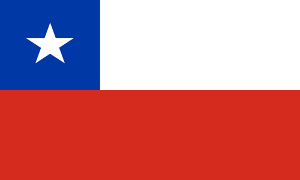
Chile’s women and gender minister, and great-niece of the late dictator Augusto Pinochet, Macarena Santelices resigned on Tuesday after just one month in office. Her short stint in office was marred by a string of controversial decisions, that resulted in the hashtag #WeDoNotHaveAMinister to trend in Chile. Also on Tuesday, Chilean senators reopened a debate over a new migration law that will tighten rules on how prospective immigrants can enter Chile. The move comes after a report last week suggested Chile could become a migration hotspot following the decline of the coronavirus pandemic.
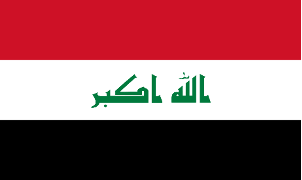
Following an independent fact-finding inquiry into the hundreds of deaths, injuries and abductions among anti-government protesters in October 2019, the first arrest was made on Thursday. The Supreme Judiciary Council said last month that it released detainees based on Article 38 of the constitution that guarantees the right to protest, “provided that it is not accompanied by an act contrary to the law.” However, human rights groups say that those abducted were most likely subjected to torture and violence and many protesters are yet to be released.
On the 6th of June, Iraqi lawmakers approved the remainder of newly elected Prime Minister Mustafe al-Kadhimi’s picks for his cabinet. With vacancies in seven cabinet positions such as that of oil, justice, migration, displacement and culture, agriculture, foreign affairs and trade finally filled, the 22-member cabinet is now able to tackle the implications of coronavirus. Meanwhile, ISIS attacks in Iraq have surged. There are currently 5,200 American troops in Iraq dedicated to counter-terrorism and training of Iraqi forces.
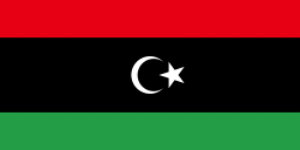
The United Nations reports with horror that at least eight mass graves have been discovered in the country, which the UN-recognized Government of National Accord (GNA) has promised to investigate. The graves are primarily outside of Tarhuna, a key city to the southeast of capital Tripoli, that the GNA only just recovered from general Khalifa Haftar. The militia was long accused of committing atrocities in the city. On Saturday, Egypt called for a ceasefire starting this week through the UN-led negotiations, but the proposal was dismissed by Turkey.

Protests erupted in the South West province of Syria on Sunday night. The increased economic hardship following the novel coronavirus and the almost 50 percent devaluation of the Syrian pound last week sparked protests where demonstrators openly denounced President Bashar al-Assad. Anti-regime slogans from the 2011 uprising “Syria is for us and not for the House of Assad,” have been chanted throughout the week. This is the biggest protest in Sweida since the assassination of a local military man in 2015. Furthermore, on the 11th of June, President al-Assad dismissed Prime Minister Imad Khamis. No reason for the dismissal has been given as of yet.

As the novel coronavirus continues to impede the Lebanese economy, anti-government protests erupted in Beirut against the Lebanese political class and financial crisis. Protesters blocked roads across Lebanon, forcing the Prime Minister to call an emergency cabinet meeting. Branches of the country’s central bank were set on fire and vandalized as protesters shouted that they are “hungry.” Protesters weigh up the risk of succumbing to coronavirus or to hunger as security forces turn to tear gas and rubber bullets to disperse crowds.
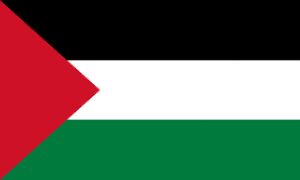
On the 30th of May, a 32-year-old autistic Palestinian man was shot and killed in East Jerusalem by Israeli police. Iyad el-Hallak was unarmed, however, was shot for not stopping walking when instructed by police. Protests quickly erupted throughout the city with parallels being drawn to the death of George Floyd in the US, protesting police brutality and using hashtags such as “Palestinian Lives Matter.” On the 9th of June, six people were arrested for using violence while protesting. The human rights group B’Tselem cites at least 11 cases during 2018 and 2019 of Israeli forces fatally shooting Palestinians as they fled.
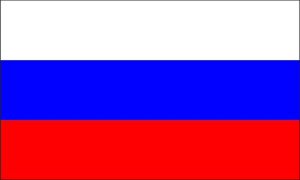
Twitter recently uncovered 1,152 accounts associated with Current Policy, a group engaged in state-backed political propaganda within Russia. The network and its peer companies were suspended for “cross-posting and amplifying content in an inauthentic, coordinated manner for political ends.” Meanwhile, as Russia’s confirmed coronavirus tally officially surpassed 500,000 this week, the government claims that lock down restrictions can be lifted ahead of Moscow’s Victory Day Parade on June 24 and a constitutional referendum on July 1. The World Health Organization has asked Russia to review its methodology for counting coronavirus deaths, describing the country’s low death toll as “unusual,” given its similar trajectory to other European countries.

Two years after its historic summit with the U.S., North Korea has declared that it sees no future benefit in maintaining ties between its leader Kim Jong-Un and U.S. President Donald Trump. Instead, the country has vowed to boost its nuclear program, saying its hopes of diplomacy had faded into a “nightmare.” Activists threatened with a crackdown by South Korea for launching anti-Pyongyang messages over the border have vowed to move underground, clandestinely spreading information into North Korea. In addition, a report by researchers at the Washington-based Center for Advanced Defense Studies has revealed that North Korea might be breaking UN trade sanctions and making millions by selling sand.

Human rights and press freedom fighters Reporters Without Borders (RSF) have filed an official complaint with the German federal judicial authorities demanding the arrest of Iranian cleric Judge Gholamreza Mansouri while he is in Europe. Mansouri has been accused of abusing his position in the Iranian legal system to torture and suppress at least 20 Iranian journalists in 2013, issuing unfair verdicts based on fabricated charges. Meanwhile, Iran has announced that it will execute the Iranian man who provided information to the US and Israeli intelligence services that led to the US-led assassination of Islamic Revolutionary Guard Corps commander Qassem Soleimani in January 2020.

On Tuesday, at least eight – ten doctors working for Nicaragua’s public health system were fired following expressed criticism of the Ortega government’s slow response to the pandemic, though numbers are not clear. The United Nations Office of the High Commission for Human Rights expressed its concern over the firings, highlighting the violation of freedom of expression in the country. The country is one of the last to reject strict measures to reduce the spread of the virus as the government insists it has the pandemic under control, but the predicted death toll indicates otherwise.

Sudanese militia leader Ali Kushayb, charged with 50 crimes against humanity and war crimes in the Darfur conflict, has been arrested more than 13 years after a warrant was issued for him. Kushayb surrendered in the Central African Republic and was transferred to the custody of the International Criminal Court (ICC). The Prosecutor of the ICC has urged the UN Security Council to press Sudan to bring more indicted persons, including ex-president Omar Al-Bashir, to justice for genocide and mass atrocities. Earlier in the week, supporters of Al-Bashir gathered in central Khartoum to protest the UN’s new support mission for Sudan’s transition, escalating to a degree of force. New criminal charges have been filed against Al-Bashir for the squandering of state funds, as the Sudanese anti-corruption committee discovered he received $20 million monthly on his personal bank account. Peace talks between the Sudanese government and rebel movements also resumed on June 9 via media conferencing.

Last month American AT&T pulled DirecTV out of Venezuela due to U.S. sanctions. Arrest warrants were issued this past week for three local executives of the service company, who claim that they had no prior knowledge of the cuts and are innocent of any crimes. At the border, thousands of Venezuelans who previously fled their homeland are trying to return after the severe economic downturn caused by the coronavirus pandemic.

The New York Times admits that a close look at Bolivian election data indicates that the initial analysis by the Organization of American States (OAS) suspecting vote-rigging in Morales’ fall 2019 election success was “flawed.” The accusations helped force out the president in November. On Wednesday, Bolivia’s parliament approved the new date of 6 September for the country’s election, which was delayed due to the coronavirus pandemic.